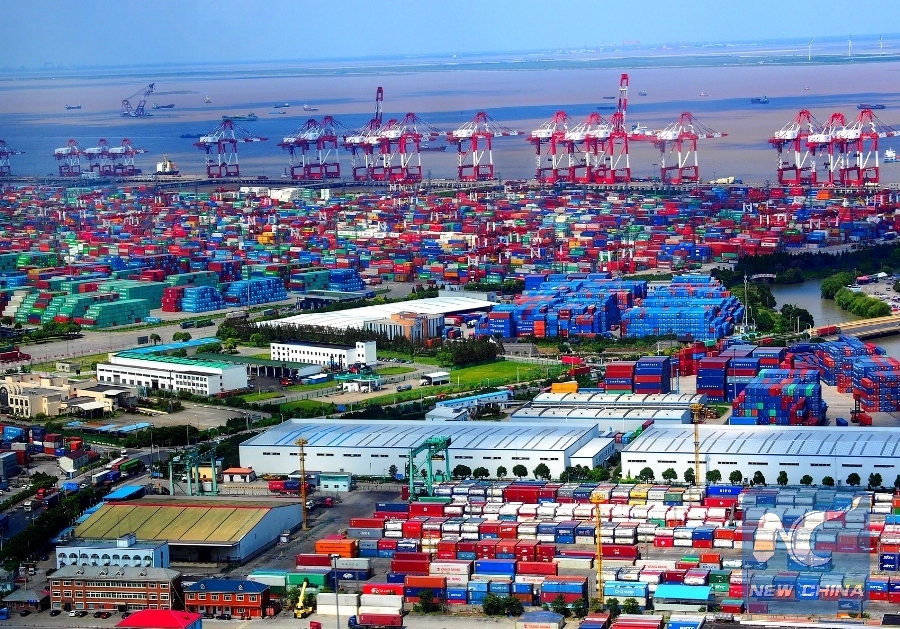Interview: Creativity essential for China's avoiding middle income trap -- U.S. expert
Xinhua by Yang Shilong, Wang Wen, Zhang Zhihuan, April 20, 2017 Adjust font size:
 |
|
Photo taken on Sept. 29, 2013 shows a general view of the Waigaoqiao Bonded Area of theChina (Shanghai) Pilot Free Trade Zone in Shanghai, east China. TheChina (Shanghai) Pilot Free Trade Zone started operation on Sunday, launching a test bed for the Chinese leadership's drive of deepening market-oriented reforms and boosting economic vigor. (Xinhua/Chen Fei) |
The political scientist who coined the famous notion of "soft power" in the 1980s said it has been appropriate for China to lower its growth target in recent years.
"If we look at the larger picture of history, we also know that countries which have very high growth, such as 9 percent growth, eventually return to lower growth, which is a more normal, proper rate of growth," he said.
He said his colleague Larry Summers did a study on other countries which had 10 percent growth, and found that "just through the normal processes, they go on to a growth of around 3 percent, 3.5 percent."
"So even without the changes and globalization that we've mentioned, one would expect that China's growth rate would decline. Even if China grows at 3.5 percent, that's a very good growth rate," he said. "But it's not 10 percent, and it probably never will be 10 percent again."
"We have to make sure that we don't confuse current politics with long-term trends and economy, and that's why it's worth having a larger historical perspective," he said.
"People sometimes talk about the early stages of growth: You pick the low-hanging fruit, and gradually, it's not easy, it's harder, and then the growth rates slow down, and that would happen even without the changes and views about globalization and trade internationally," the professor said.
Nye said it is crucial that the United States and China, the world's top two economies, maintain a good bilateral relationship, especially in a world that is marked by Brexit and a resurgence of populism,anti-globalization and trade protectionism.
He considered Britain's leaving the European Union a mistake, noting that it will be difficult and take years to implement, and will leave Europe and Britain both weaker.
Nye also expressed his concern over the upcoming French presidential election on Sunday.
"If Marine Le Pen wins and takes France out of the European Union, that I think would undercut the European Union very badly. So Europe can live without Britain; it can't live without France," he said.
Last week, a French poll showed that the voting intentions for France's two front-runners for the presidency, far-rightist Marine Le Pen and centrist Emmanuel Macron, were 24 percent and 23 percent respectively.
Talking about the current situation in the Middle East, Nye said the region "is going through a series of revolutions, which have their roots in a rested modernization."
"These revolutions take decades to work their way through, so I don't think we are likely to see stabilization in the Middle East region for quite some time, maybe decades," he added.
Nye said there are voices in developed countries including the United States that are skeptical of institutions like the United Nations, the World Trade Organization and the International Monetary Fund, but "the majority view is still supportive."
The key question will be whether China and the United States can cooperate to make these institutions work effectively, he added.
Nye pointed out that China-U.S. cooperation on climate change and cyber security has made real progress in recent years, which proves a stronger China-U.S. relationship will not only benefit both countries, but also help promote world peace, stability and development.
